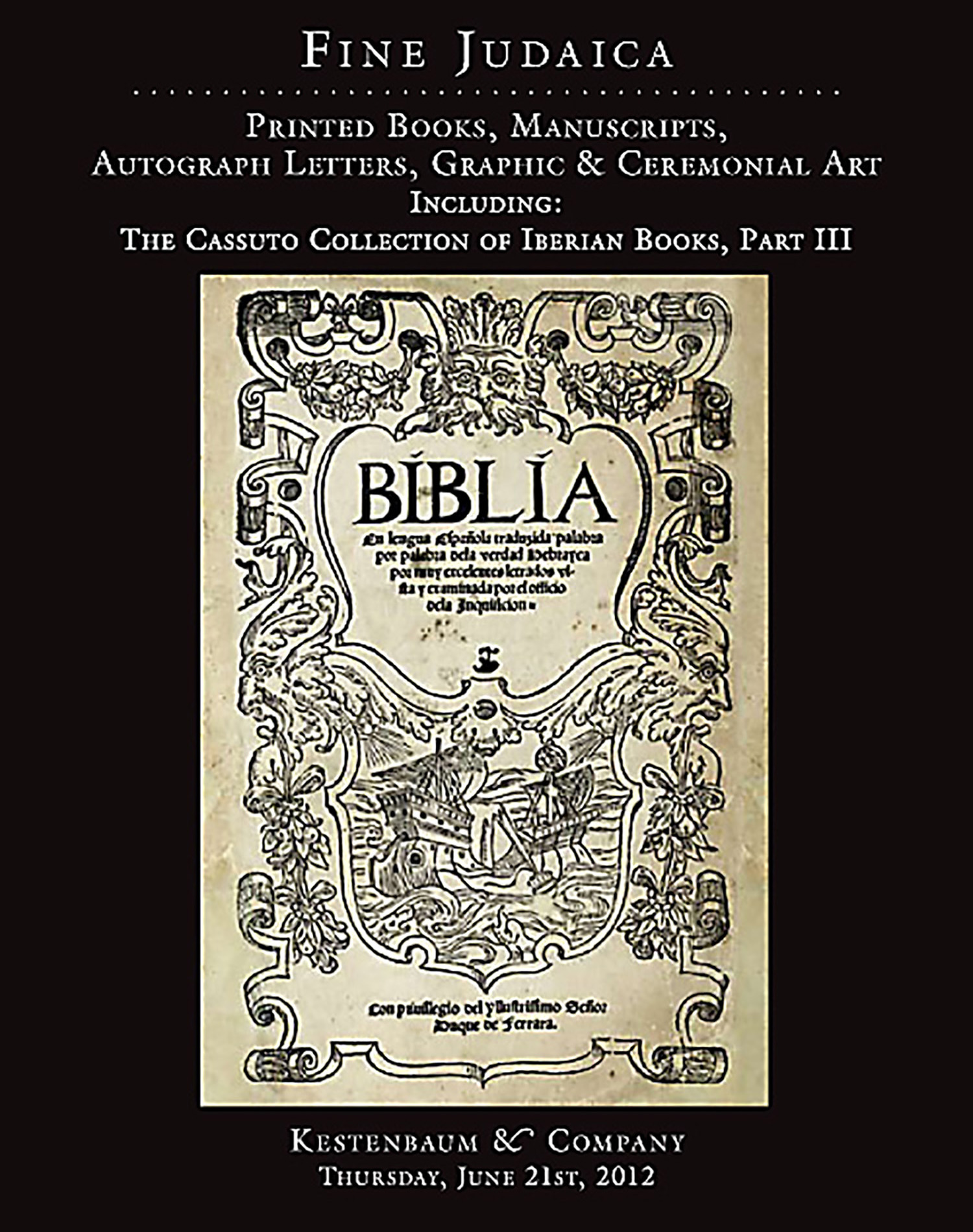Wochentliche Verzeichniss…Juden-Rechnung.

AUCTION 55 |
Thursday, June 21st,
2012 at 1:00
Fine Judaica: Printed Books, Manuscripts Autograph Letters, Graphic & Ceremonial Art
Lot 117
(GERMANY).
Wochentliche Verzeichniss…Juden-Rechnung.
Augsburg: circa 1800
Est: $1,200 - $1,800
PRICE REALIZED $1,400
<< A checklist of Jews permitted to enter the city of Augsburg.>>
In 1439 the large medieval Jewish community of the imperial free city of Augsburg were expelled. Thereafter, a limited number of Jews authorized by the city council might enter the city Monday through Friday, only during the day and provided they left before nightfall. In addition, they were permitted to enter the city only via the Gögginger Gate. This became a way of life for Jewish traders and tradesmen who would make their home in the adjacent villages of Kriegshaber, Pfersee, and Steppach and commute into work in the great commercial hub that was Augsburg.
The present document is a printed checklist, with spaces for manual completion by the guard at the Gögginger Gate checkpoint. It provides the names of the Jews authorized to enter on a daily basis and the dormitory community from which each came, (some of the names have beside them inked check-marks).
In certain cases, the Jews’ occupation is given: David Obermayer and Zacharias Mayer, butchers; Joseph Schwab, doctor; as well as messengers and one mail carrier. Abraham Levi is recorded as the Schulklopfer, presumably responsible for organizing a quorum of businessmen for afternoon prayer. Along with the 86 men listed here is one woman: Fradel Neubergerin of Kriegshaber. Employees admitted on account of their employers are recorded in a separate section of the list.
Denial of the right of residence to Jews continued in Augsburg until 1806, when the Holy Roman Empire was dissolved by Napoleon and the city state of Augsburg was merged into the Kingdom of Bavaria. The present document dates from the very last years during which this almost 400 year-old exclusion remained in force.
